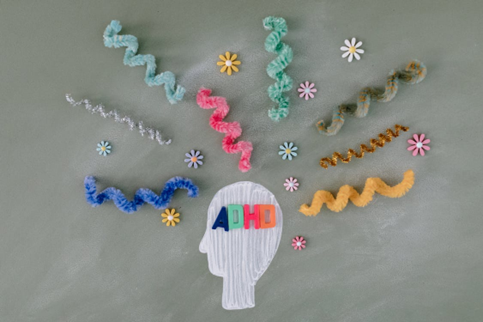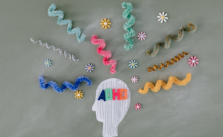Fiction: “Oh, every one of us has a little ADHD!”
Reality: Each of us has features of ADHD but not all of us have ADHD. Everyone at times can indeed be impulsive or easily distracted but that doesn’t mean we have ADHD. But when it becomes a problem with learning or in our daily lives, we can think of it as a neurological or genetic disorder (being diagnosed by a psychiatric or a mental health specialist).
Fiction: “So, ADHD is the same thing as a learning disability”
Reality: NO. They are two different disorders. There’s indeed a high possibility, according to experts and studies, that a patient with Learning Disability may have ADHD. The big difference between these two is that ADHD has a structure and an origin in chemical issues specific to the brain, while LD has a structure and function matter.
Fiction: “My ADHD can be treated just with medication”
Reality: This is not completely true. Yes, medication is crucial but as a co-portion of the treatment. On the other hand, therapy and coaching are also very important and effective in this process. Keeping stable mental health, or health in general is the key to getting positive results during the treatment.
Fiction: “Most of the people with ADHD got diagnosed at school or their parents diagnosed them”
Reality: The only way to get diagnosed with ADHD is with a mental health provider (psychiatrist, psychologist, etc.) and through a comprehensive evaluation. Remember that this is not based on a learning disability, that can be seen just in school, this is based on an entire behavior that also happens at home with friends and family. It happens in all aspects of a person’s life, not just one.
Fiction: “My daughter has ADHD. He won’t be able to live a normal life like the rest”
Reality: Let’s remember again that learning disability is totally apart from attention deficit and hyperactive disorder. Having been diagnosed with ADHD is not any impediment for you to being capable or having the ability to achieve success. Most (if not all) ADHD individuals are extraordinarily competent and part of what allows them to do that is being self-aware of the things they are capable of doing and keeping their treatment protocol in place.
Fiction: “I’m afraid the treatment will lead me to an addiction”
Reality: This leads us back to the previous point. With responsible management of the treatment by a mental health provider, you won’t have to be afraid of it. If the patient follows the provider’s instructions very carefully it won’t lead to an addiction to this kind of medication. If the patient is self-medicating for any other disorder or making use of alcohol along with the treatment this will potentially result in negative benefits.
Fiction: “I won’t take a treatment! Most of those medicines give you a lot of side effects. I don’t want to be a zombie!!”
Reality: A lot of people have the misconception that if they receive treatment for ADHD, they will FOREVER suffer from side effects such as diminished appetite, sleep problems, delayed growth, etc. Each of these aspects can be avoided or controlled with very careful medication monitoring by a mental health provider.
In addition to the medication, your provider can suggest practicing Mindfulness. This is a practice of paying attention to the present moment with curiosity and openness. It can help people with ADHD cope with some of the common challenges they face, such as distractibility, impulsivity, emotional regulation, and self-esteem.
For more information about mindfulness, you can go to: https://amindfulnessspace.com/mindfulness-supporting-adhd-treatment/




Comments are closed